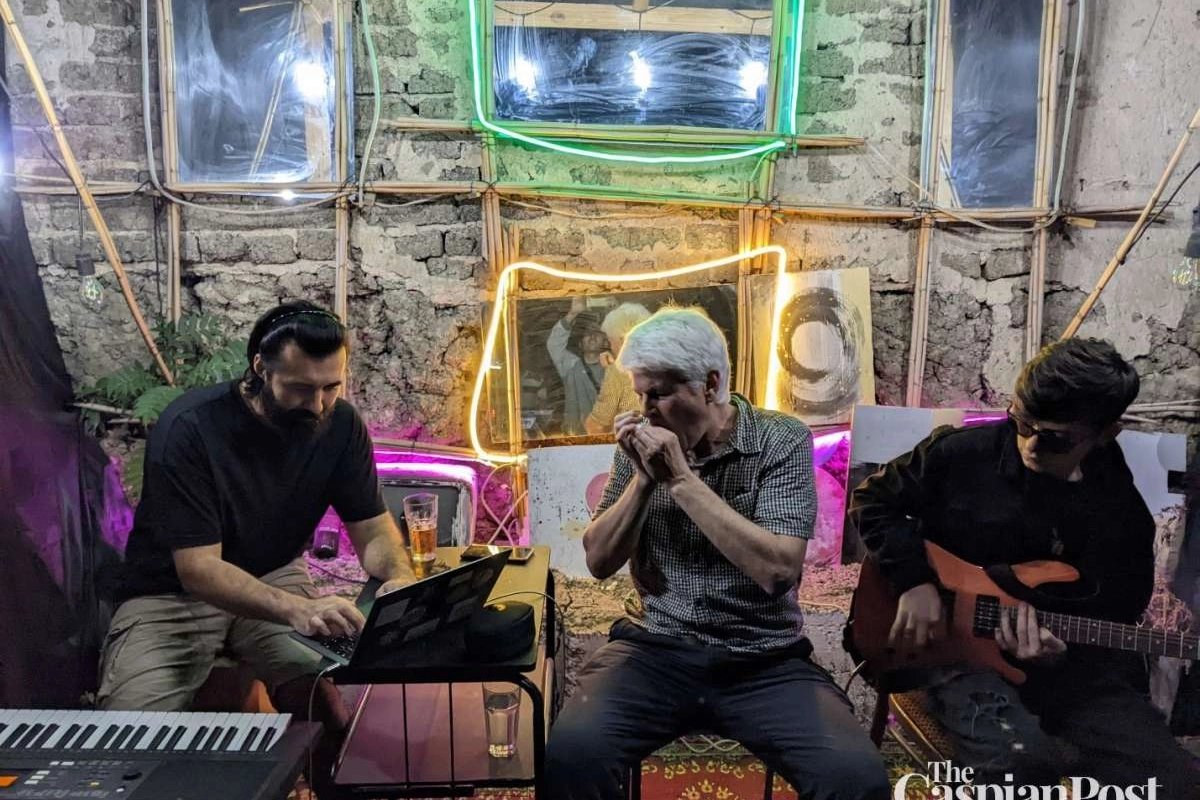
Mark Elliott explored the cafe culture of Ganja during his visit to Azerbaijan last month. Turns out it's much more than tea.
Images provided by Mark Elliott
After being suitably awestruck by the colourfully vibrant contrasts of Baku, international visitors to Azerbaijan typically head to the mountain villages around Quba, unwind in the bargain five-star spa hotels of Qabala or revel in the Silk Road charms of Sheki. However, the country’s second city, Ganja, rarely gets a look in other than for those tickled by the name’s drug-nuanced double meaning, which loses its charm when, on arrival, one discovers that the local spelling in Azerbaijani is Gəncə.
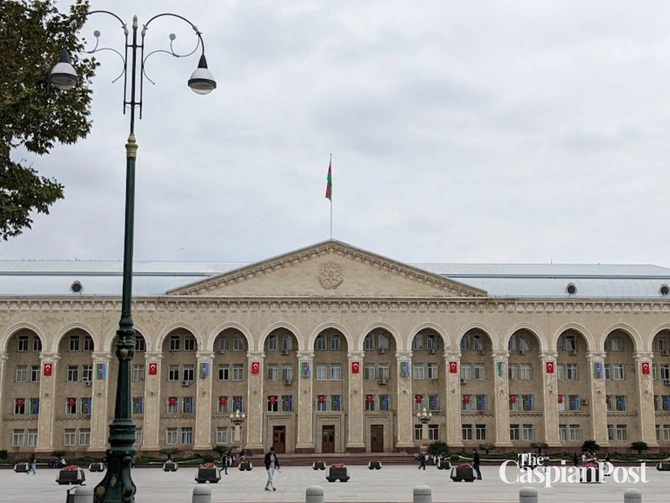
However, it’s well worth visiting as the city has a flavour all of its own. At first glance, you might think that the abiding atmosphere was pseudo-Soviet triumphalism, given the gigantically long Stalin-era governmental building that gives a mesmerizing elegance to the huge central square.
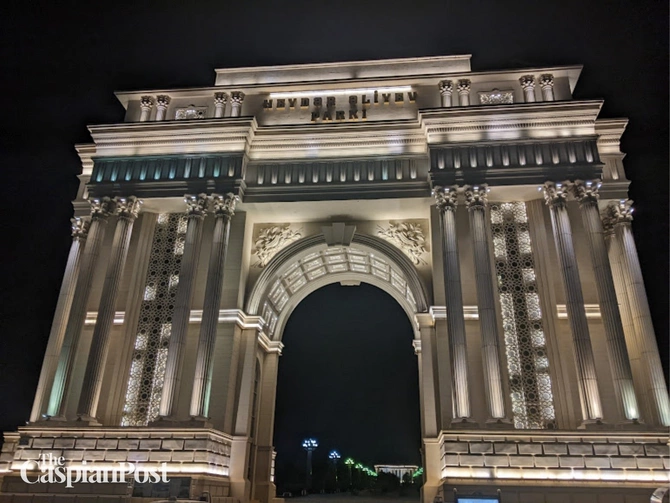
Or the city’s truly astonishing Arc-de-Triomphe lookalike in a massive park on the western outskirts may give you the same idea. Even the fancifully retro drama theatre, while brand new, has an imposing heaviness of design. However, the city has an altogether softer side, most visible in its developing café scene.
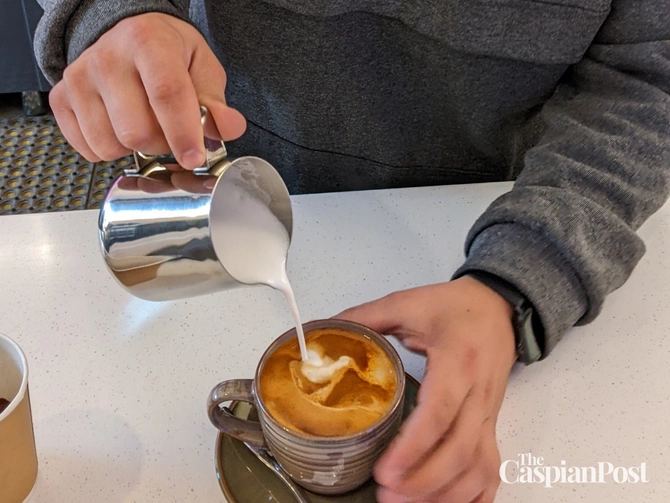
Opposite the puppet theatre, the very chill, contemporary barista coffeeshop, Kucali, uses Mazzer grinders and an Ibertal machine to fix punchy, well-made flat whites.
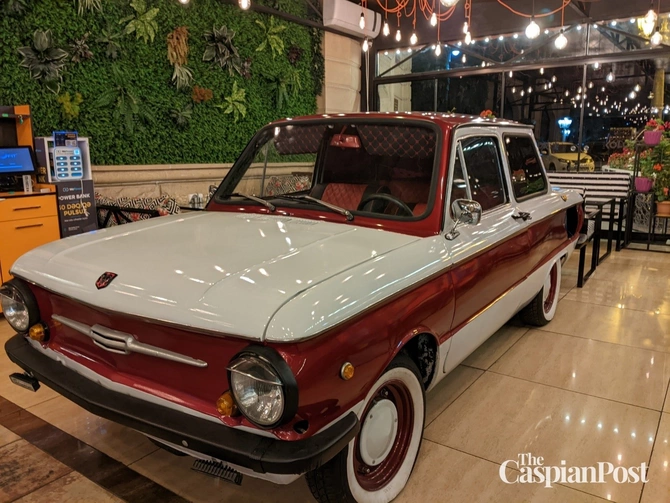
On Cavadxan Kucesi, the main pedestrianized shopping street, you’ll find a casually trendy branch of Kolorit with a Zapo-965 car on the glass veranda and half the face of Kurt Cobain as a wall mural.
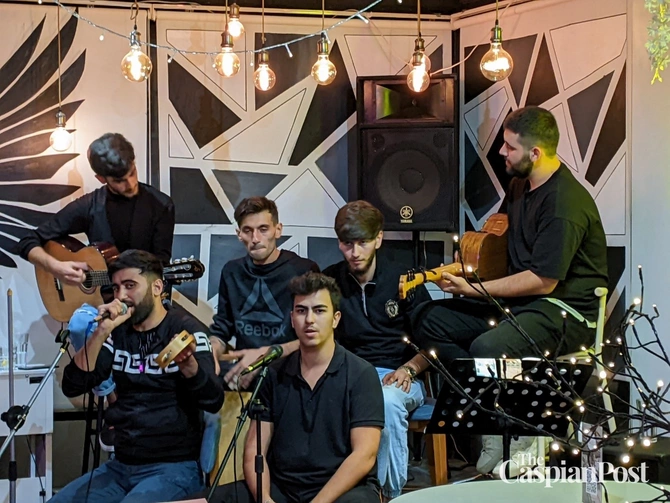
London goes for a more floral feminine feel, and Melody hosts some impressive – if over-amped live music.
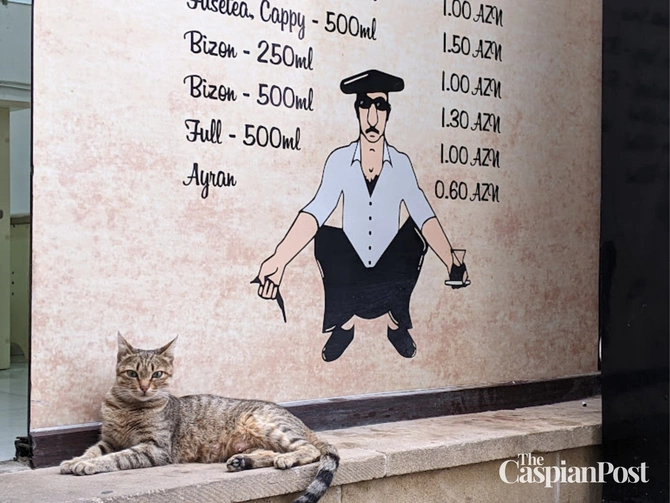
Meanwhile, on the same street are several trad-style tea houses for older gents and a seasonal fruit stand where a lad will squeeze ripe pomegranates for a vitamin-filled thirst quencher that costs only 0.50 AZN (.30 USD).
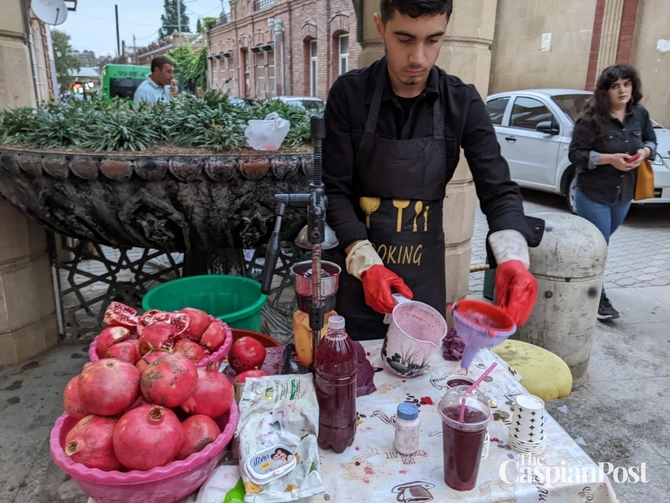
There are plenty more tea places around Khan Baghi, the luxuriant city-centre park, and you needn’t pay more than 1AZN a pot even on the main square.
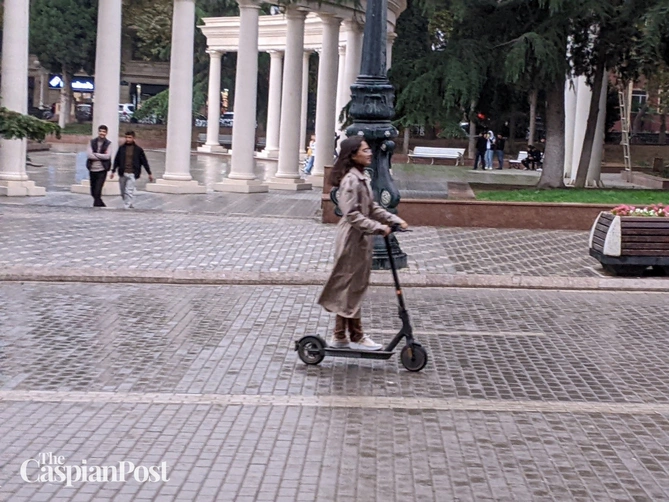
Here, while sipping your tea, you can watch youngsters (and the odd older gent) zipping about the square on electric scooters under the paternal gaze of a large Heydar Aliyev statue.
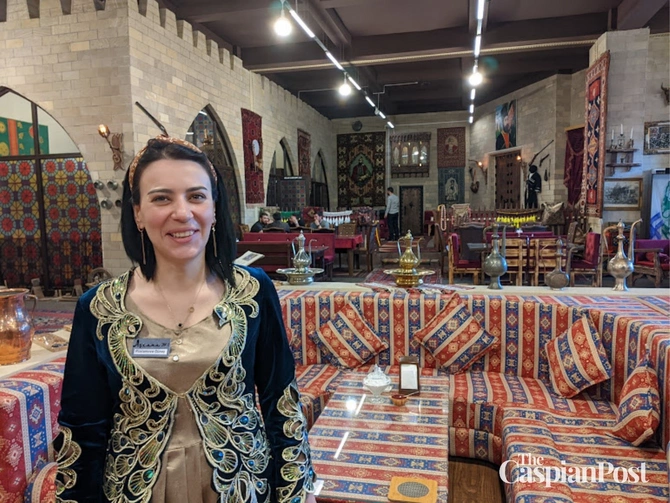
Ashkhana Sehirli Tandir is a new attempt to create a museum-style dining/café experience where you sink into richly patterned U-shaped settee seats or on-floor spaces amid antiques, carpets and murals. The place gives something of the impression of an old-world Iranian sofreh khane. However, it’s beyond me quite why it’s been built in the brand new mall-style setting of the bazaar rather than in the far more suitable 17th-century caravanserai - recently converted into a great value mid-range hotel[1].
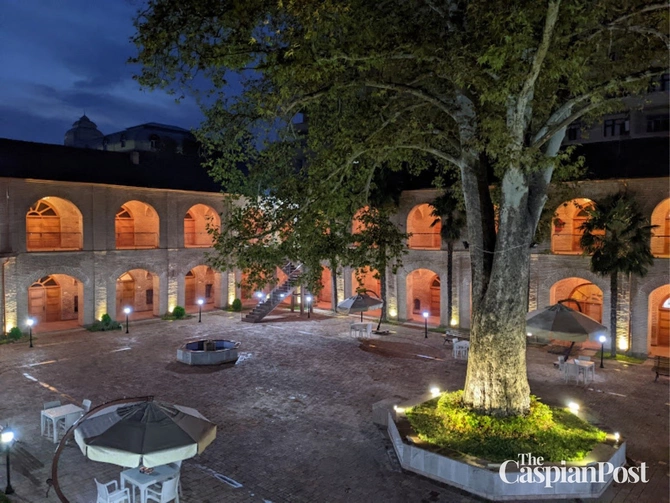
Yet none of these very worthy places impresses me as much as the wonderful Art Garden, aka Café Xoyski (two names, one place). Forget glitz or overt fashion statements. This oasis is all about DIY aesthetics and creating a space for low-key self-expression. It’s the kind of place where you could find yourself talking philosophy or listening to self-analysis. You could join a book group, read poetry, take an art class or help in the ‘making workshop’ where craftsfolk build much of the infrastructure for the café – and plenty more. Of course, if you just want a coffee, they have a pretty decent barista too.
It’s central but not in the most obvious place – behind a typical red-brick façade a few doors down from the curious little pir-shrine niche on Vagif St. At night, homemade coloured lanterns make more of a splash, but nothing showy. Inside there’s a delightful mishmash of decors and mural styles - a marvel of cooperative creativity rather than designer intent. This imbues the whole place with a wonderful low-voltage sense of personality, with a different vibe in each space.
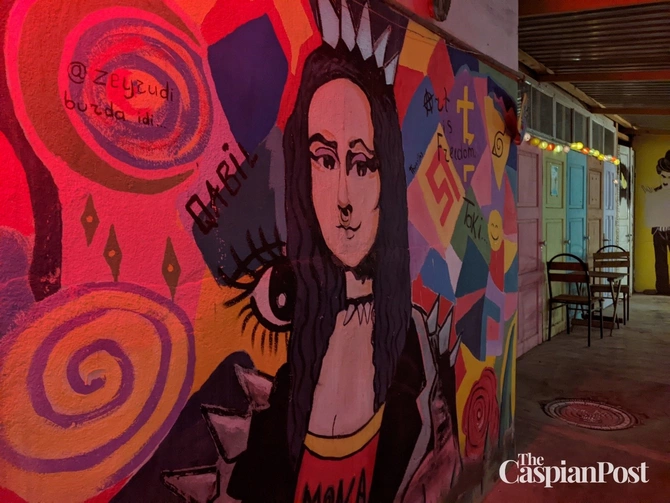
There’s a nose-ringed Mona Lisa. A semi-abstract rainforest. A huge motorbike. Wind chimes and dream catchers in a lovers’ niche. And a big garden with further cozy spots to sit beneath pomegranate trees at knocked-together tables and with access to a jerrybuild stage and outdoor bar area that’s still a work in progress. The whole place is very much an active arts incubator.
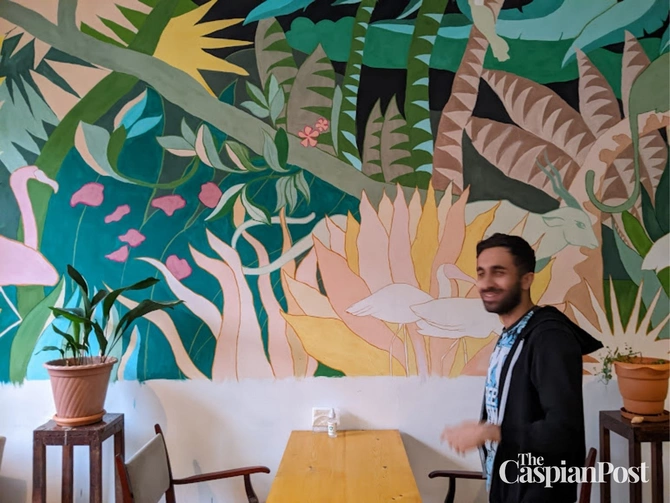
“This is all a far cry from the small box room that was the starting point for the project,” says co-founder Murad Nabiyev, though not before a brilliant evening of jamming blues together, along with a 17-year-old guitar virtuoso who put us both to shame. It’s immediately apparent that Murad is someone special. Eyes glowing, he exudes a love of life and a sense of wonder at the possibilities that a place like this opens up. As we talk, it becomes clear that getting to this point has been a considerable journey of learning and setbacks, but “without failure, you’ll never achieve anything.”
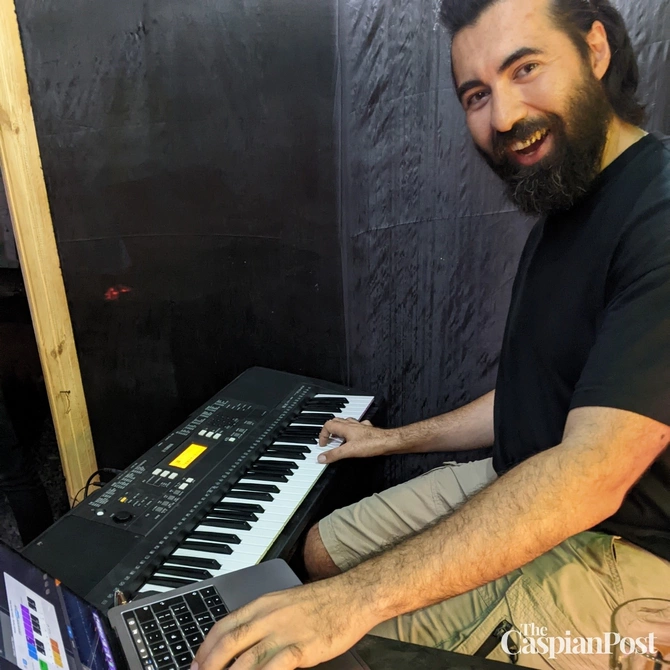
Murad spent many years working in Information Technology in the UK. “I used to go to the Tate, the Barbican etc., but there was something missing,” he says, recalling how he was drawn back to his homeland, initially founding a Baku arts and theatre group called Çıxış. After around eight months, however, having primarily funded the project himself, Çıxış shut down in August 2018 due to financial constraints. Not to be beaten, Murad decided to return to his home city, Ganja. “With Tahmina, an artist here, we thought we should start something for locals. I knew there were already 10 or 15 underground places that artistic types could go to in Baku, but here in Ganja, there was nothing. So we used to organize workshops, talks and Q&As. Then one day, we decided to host a music event, just our former manager Kapaz with his guitar. We announced it on Instagram and Facebook, and, to our amazement, 40 or 50 people showed up in a tiny space which could barely fit 20. So I realized that there was actually a demand.”
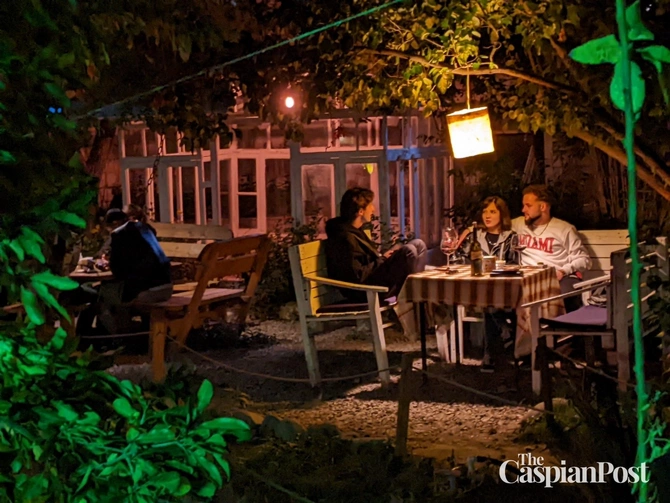
There have since been two changes of location to bigger venues as the project ballooned, now financially sound due to the popularity of the café. Also, Murad has rethought the organizational structure. “It dawned on me that a centralized decision-making process is not productive at all, and we need … a horizontal hierarchy. That is culturally a bit unusual here, where typically, people expect decision-making to come from one person. It was strange at first, but now everyone is responsible for their own team within their area of interest, and it works well. They plan their own activities and run their own system. Actually, that’s what I wanted all along – now I often don’t know what will be happening week to week, but that’s just fine.
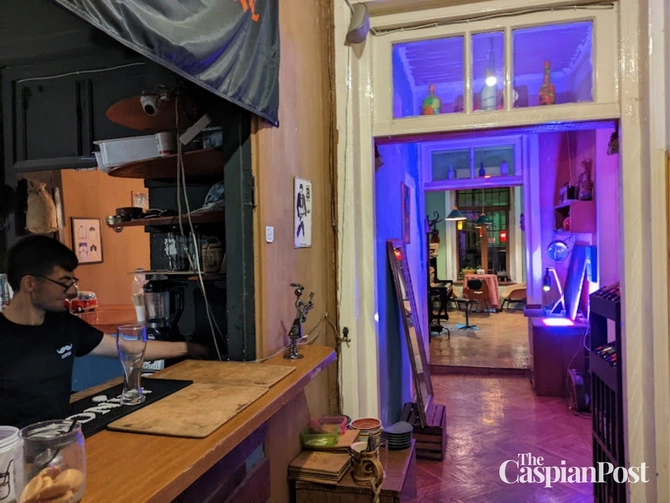
“Covid was hard due to the inevitable loss of motivation – but we were allowed to sell takeaways, and the owner of the building kindly decided not to charge us rent. The [Second Karabakh] War was also tough as nobody went out during that time,” but the group has come out stronger than ever.
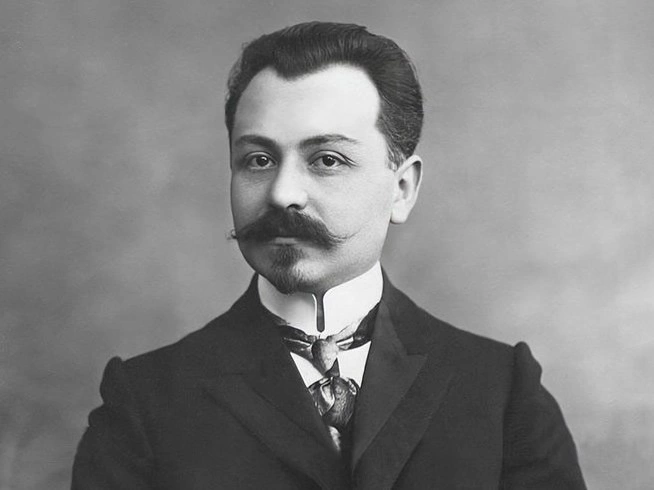
Image: Wikimedia Commons
So why the alternative moniker, Xoyski Cafe? “It’s named for the prominent historical figure Fatalixan Xoyski. Well, he was not just one of the leaders of the Azerbaijan Democratic Republic[2] – which makes him a cool guy – he was also an innovator and an educator, and I see him as [a very early forerunner] of hipster culture – well, he had a nice moustache! Just the letters of his name XOY are eye-catching. Actually, though, the idea came to me years before when I travelled to St Petersburg with my wife. We went to a club called Griboyedov [named for the flamboyant 19th-century Russian diplomat], and I said, ‘look – these Russians have Griboyedov Club, Pushkin Cafe, Chekhov Pub… why don’t we have something like this in Azerbaijan? Why do we use lame names like American or British Pub? We can just have something of our own. I said then, if I ever had a café, I would name it Xoyski.’ And now I do have a café! So there it is.”
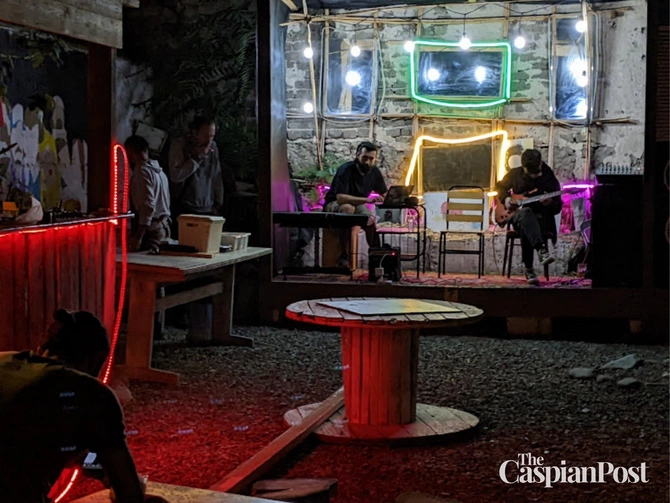
[1] Not to be confused with the altogether less interesting if similarly named out-of-centre Karavansaray Hotel.
[2] which declared its 1918 independence here in Ganja – the building once briefly used as the first national parliament is now part of the Agricultural University
Share on social media